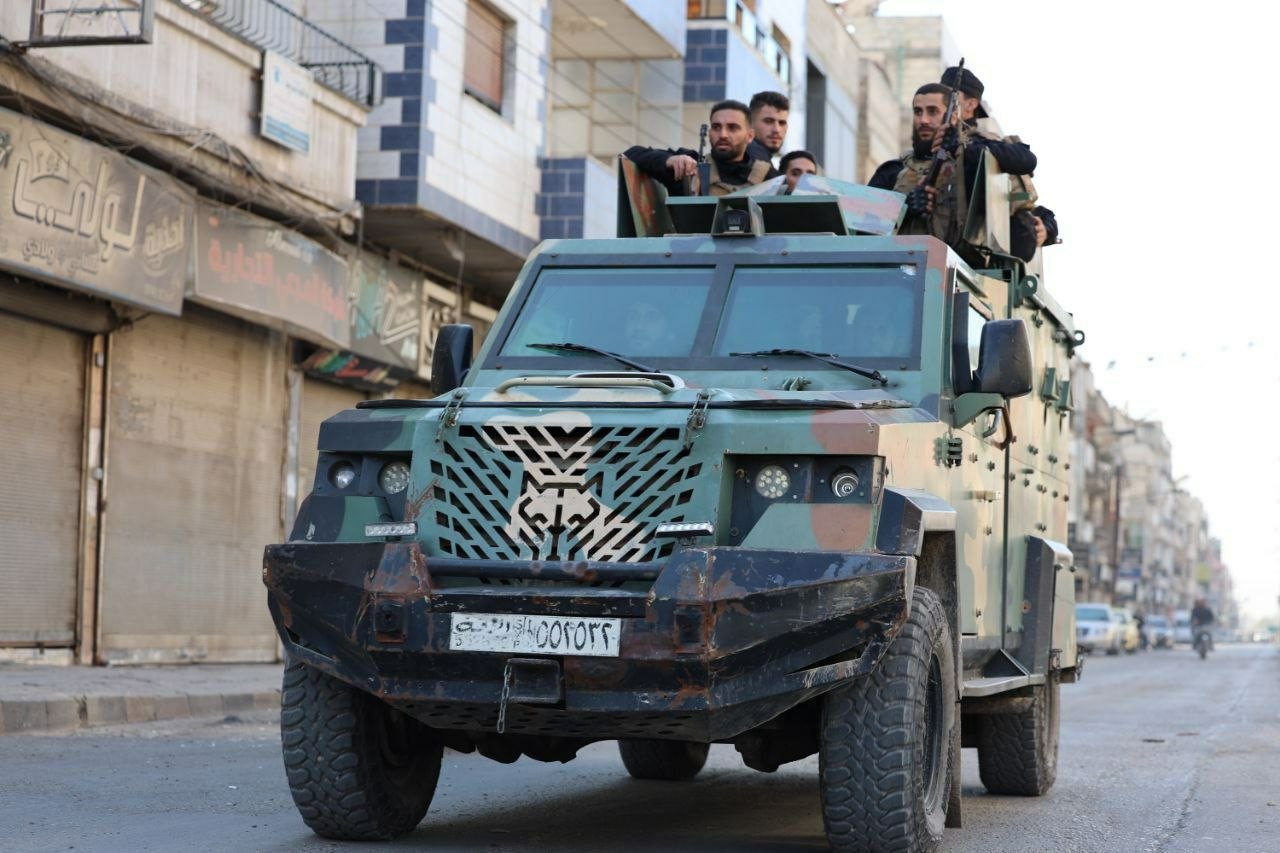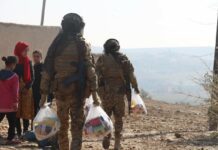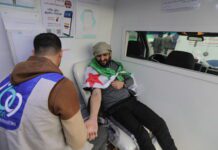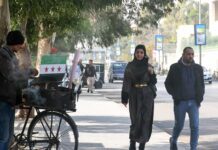
Security forces in Homs imposed a curfew and deployed heavily across southern neighborhoods Sunday, November 23, after the killing of a couple in the town of Zeidal triggered retaliatory attacks and sectarian tension, according to the state news agency SANA. The victims, identified by local activists as members of the Bani Khalid tribe, were found inside their home with the wife’s body burned. Sectarian phrases were written at the scene, which officials described as a clear attempt to provoke strife.
Brig. Gen. Marhaf al-Naasan, head of internal security in Homs, said in a statement from the Interior Ministry that authorities immediately cordoned off the area, collected evidence, and opened what he called an extensive investigation to identify the perpetrators. He condemned the killings as an effort to sow discord and urged residents to remain calm and allow investigators to work.
Retaliatory Violence and Government Response
Hours after the bodies were found, armed men from the Bani Khalid clans attacked the Muhajirin neighborhood in Homs, whose residents are predominantly Alawite. Witnesses told local outlets that gunmen opened fire in the streets, stormed homes, and damaged shops.
An activist from Homs reported material losses that included burned cars, looted property, and smashed storefronts, as well as panic among civilians. The activist, who requested anonymity for security reasons, said transportation in affected neighborhoods came to a halt until internal security units intervened to contain the violence.
Security forces and the Syrian army surrounded the neighborhoods and worked to restore order. The Homs Governorate said it imposed a tight security cordon, increased foot and vehicle patrols, and enforced a curfew from 5 p.m. Sunday to 5 a.m. Monday to prevent further attacks. As a precautionary measure, the Education Directorate suspended school attendance for Monday, November 24.
Urged Restraint and Motivations Examined
The governorate convened an emergency meeting bringing together army commanders, senior provincial officials including Secretary General Firas Tayara, political affairs director Obaida Arnaout, tribal representatives, the director of endowments, and the city’s mufti. Officials emphasized cooperation between state institutions and local communities to maintain stability.
The Bani Khalid tribe issued a statement condemning the murder of the couple as heinous and urging authorities to uncover the killers. The statement said the sectarian language left at the scene showed an intent to incite tensions. Tribal leaders distanced themselves from the retaliatory attacks and called on residents to avoid mobilization, exercise restraint, and uphold civil peace.
Interior Ministry spokesman, Nouruddin al-Baba clarified that while “all possibilities remain open for the Criminal Investigation Unit,” preliminary investigations show the phrases written at the scene were placed to mislead and are not sectarian. Baba stressed that, “so far, there is no material evidence indicating a sectarian motive behind the Homs crime,” and that “we believe the crime is criminal, not sectarian.”
International Concern and Calls for Accountability
Najat Rochdi, the UN Deputy Special Envoy for Syria, said on X that she was closely following developments in Homs. She cited reports of attacks on civilians and property and stressed what she called the urgent need to restore calm, protect civilians, respect the rule of law, and hold those responsible accountable. Relative stability returned by late Sunday, though activists reported lingering anxiety in neighborhoods that saw violence. Authorities have not announced suspects, and investigations remain underway.








